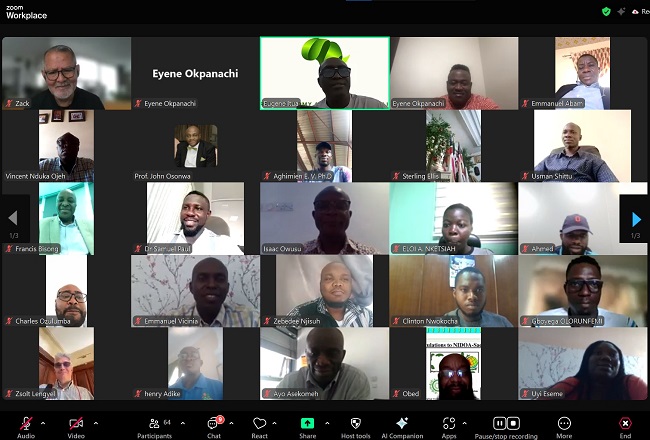As climate urgency accelerates across the globe, Africa is stepping into a pivotal role as a potential leader in the carbon market.

At the launch of the African Carbon Market Outlook 2025 on Wednesday, May 14, 2025, hosted by the Carbon Free African Network, stakeholders, thought leaders, and advocates came together to discuss Africa’s carbon opportunities and how to ensure they are equitable, sustainable, and community driven.
In his opening remarks, Noel Casserly, director at Avenir Ver and a prominent advocate for sustainable development, framed the event’s significance: not just as a report launch, but as a call for Africa to take ownership of its carbon future.
Dr. Sadiq Austin Oko, CEO of the Carbon Free African Network, delivered the first keynote, emphasising the continent’s vast renewable energy resources, untapped land potential, and youthful workforce. Crucially, Dr. Oko stressed the need for transparent governance, land rights protection, and community-centered climate action.
Professor John Osonwo’s presentation on key detailed the potential of Africa’s carbon market, emphasising the need for greater synergy and policy alignment to harness the continent’s potential. He highlighted the importance of smaller scale projects led by local communities and the need for increased scrutiny of social and ecological impacts.
Prof concluded by outline the potential for Africa to become a global leader in carbon markets, but with a focus on climate justice.
With the African carbon market currently valued at $2.4 billion, projections show it could double in the next decade, thanks to increasing global demand for voluntary and compliance carbon credits. The market is expected to grow 15–20% annually, with carbon credits comprising 80% of its total value.
By 2030, up to 300 million credits could be issued. By 2050, that number could reach 1.5 billion, generating $6 billion in revenue and creating an estimated 30 million green jobs.
In the panel discussion session, Dr. Eyene Okpanachi emphasised that Africa’s success depends on building robust governance structures. These must include: Transparent benefit-sharing mechanisms, Strong policy and regulatory frameworks, Environmental and social safeguards, Long-term data and Impact monitoring systems.
The importance of community consent, informed engagement, and indigenous knowledge also featured prominently in the discussion, positioning local actors as central to any carbon market model.
Despite the promise, challenges remain according to one of the panelists, Zsolt Lengel, who highlighted that there is a demand gap for African carbon credits, driven by unclear offsetting regulations, limited awareness, and underdeveloped markets.
Yet, there’s hope: the European Union, among others, is eyeing Africa as a future supplier of high-integrity carbon credits. For this opportunity to materialise, validation bodies, technical expertise, and financing mechanisms must be scaled across the continent.
Practical experiences shared by Allan, a 30-year reforestation veteran, and Mark Baker of Carbon Tanzania, illustrated the urgent need for: Reforestation investment (e.g., Mozambique’s 60 million hectares of deforested land), High-quality, verified carbon credits, Regulatory engagement and institutional readiness. These case studies underscored that finance and governance must move hand in hand to turn climate ambition into tangible, community-owned results.
One of the strongest messages from the event was the need to prioritise local communities in carbon projects. Speakers like Dr. Eyene Okpanach, Dr. Eugene Itua, Dr. Vincent Nduka and Sara Stefanini advocated for social acceptability, equitable benefit-sharing, and community involvement in both policy and practice. This people-centred approach will ensure that carbon markets contribute not just to emissions reductions but to climate justice and inclusive development.
The African Carbon Market Outlook outlined a clear action plan for the coming years: Carbon Free African Network to publish the 2025 Outlook and launch a subscription platform for annual reports, Development of a continental carbon exchange platform, Governments to implement comprehensive regulatory frameworks, Institutions to enforce environmental and social safeguards, Media and journalists to simplify language and improve public awareness, Community engagement to remain central to project design and implementation, and Cross-country knowledge-sharing to accelerate local success stories.
In conclusion, participants agreed that Africa is uniquely positioned to shape the future of global carbon markets not just as a supplier of carbon credits but as a visionary leader in climate innovation, justice, and sustainability.
With the right blend of policy, participation, and partnerships, the continent’s carbon transformation can fuel a new era of green development, equity, and economic opportunity, they stated.
For more information or to access the full 2025 African Carbon Market Outlook report, visit: https://www.carbonfreeafricantwork.org/
